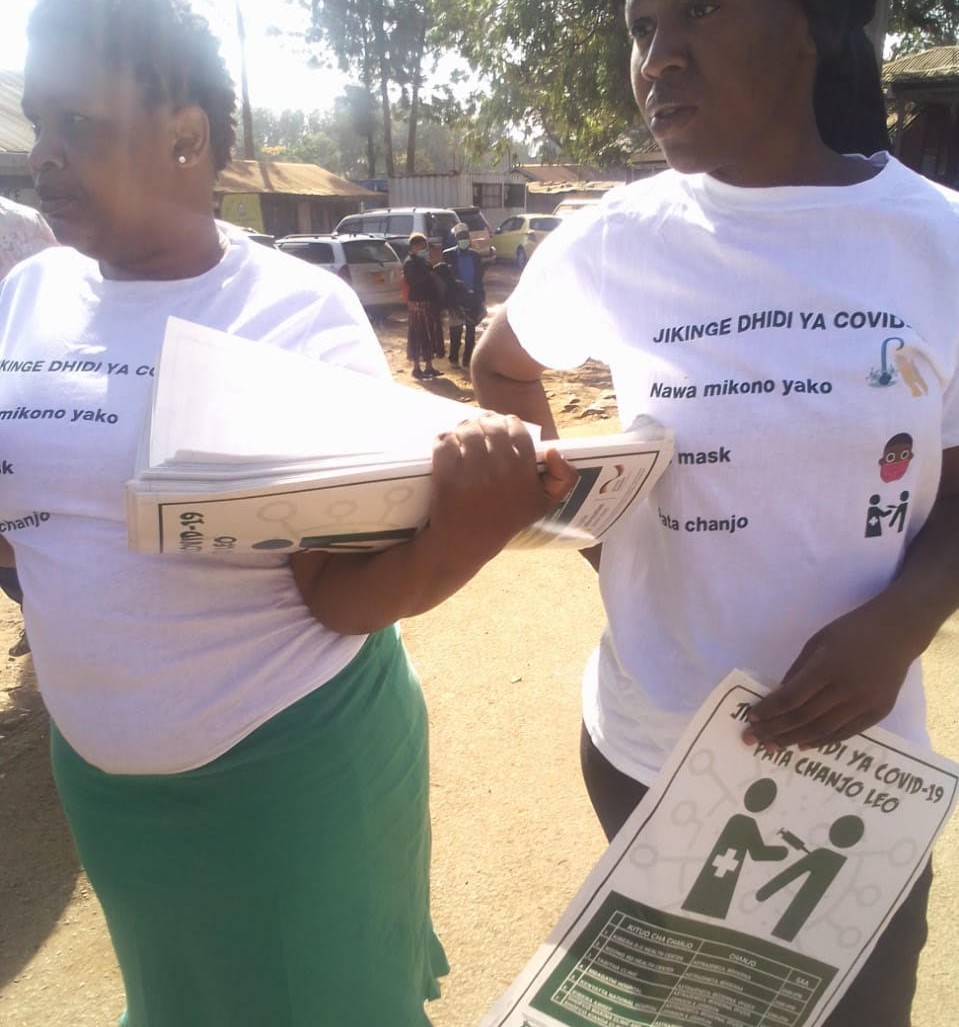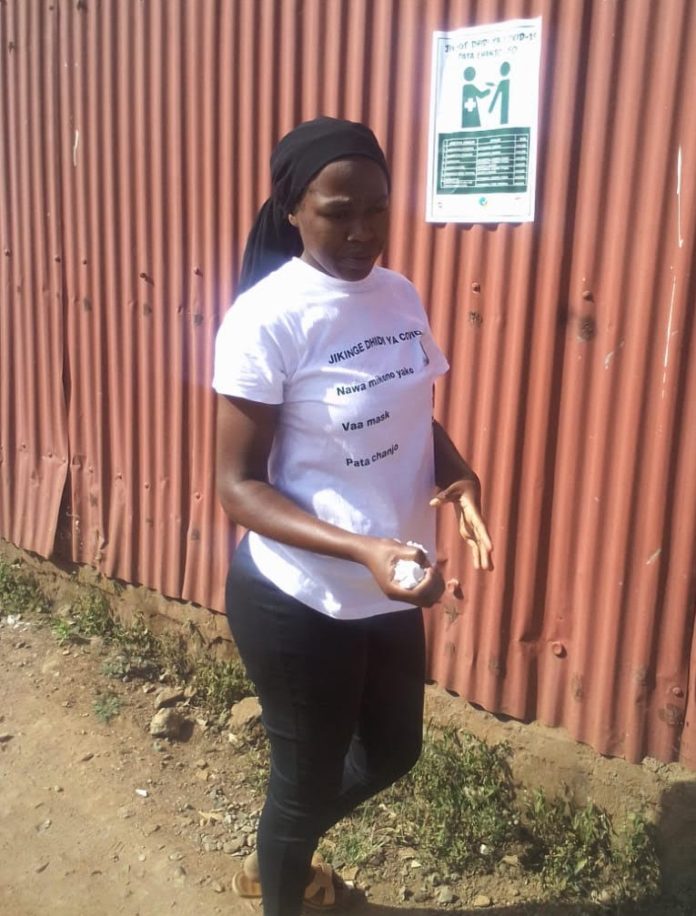By Lenah Bosibori
Nairobi, Kenya: Since the first case of Covid-19 was reported in Kenya, everybody was blank, top from the government down to the common people while disinformation gained momentum. Information credibility was a challenge.
Since the outbreak, Kenya had no single testing centers, the results were being sent to South Africa for further examination, according to the reports from Ministry of Health.
Kenya moved very quickly to have their own testing centers which stand over 70 testing facilities across the country.
Since then, so many measures have been put in place, as of 11th March this year, Kenya had reported 323,160 cases across the country, 5644 deaths giving a case fatality rate of 1.7 percent according to data from the Ministry of Health.
Nairobi is leading with 130, 831 cases and total tests done stand at 3,439,326. Omicron variant scientists say was not as severe as the first variants that were experienced during the delta variant from India.

Kibera was one of theinformal settlements put under high risk during the COVID outbreak.
Community health workers have been playing a key role mostly in the informal settlements. In Kibera, Kenya Correspondents Association (KCA) a journalist entity in Kenya that has a representation of journalists from across the country supported by DW Akademie has been on the frontlines to provide any assistance to the residents.
Article 19 supported KCA and Congress of African Journalists (CAJ) on the project: COVID-19 Response in Africa: Together for Reliable Information, which was implemented in Kenya, Tanzania, and Ethiopia.
Through their chairperson Oloo Janak, the association flagged an eight-month project that would see Kibera residents access valid information due to the high cases of disinformation that has doing rounds.
“Information credibility was a challenge, we wanted to come up with reliable information to the residents in Kibera, we printed T-shirts labeled Jikinge dhidi ya COVID 19, Nawa mikono yako, Vaa Mask, Pata chanjo –(protect yourself from Covid 19, Wash your hands, Put on your mask and get vaccinated)” said Janak.
KCA formed a team christened Crisis Communication Kenya in partnership with Deutsche Welle Akademie. The project brought on board over 30 community leaders comprising of chiefs, community health workers public health officers, and youth groups.
The project has been a success as its first phase comes to an end in March, according to Janak.














